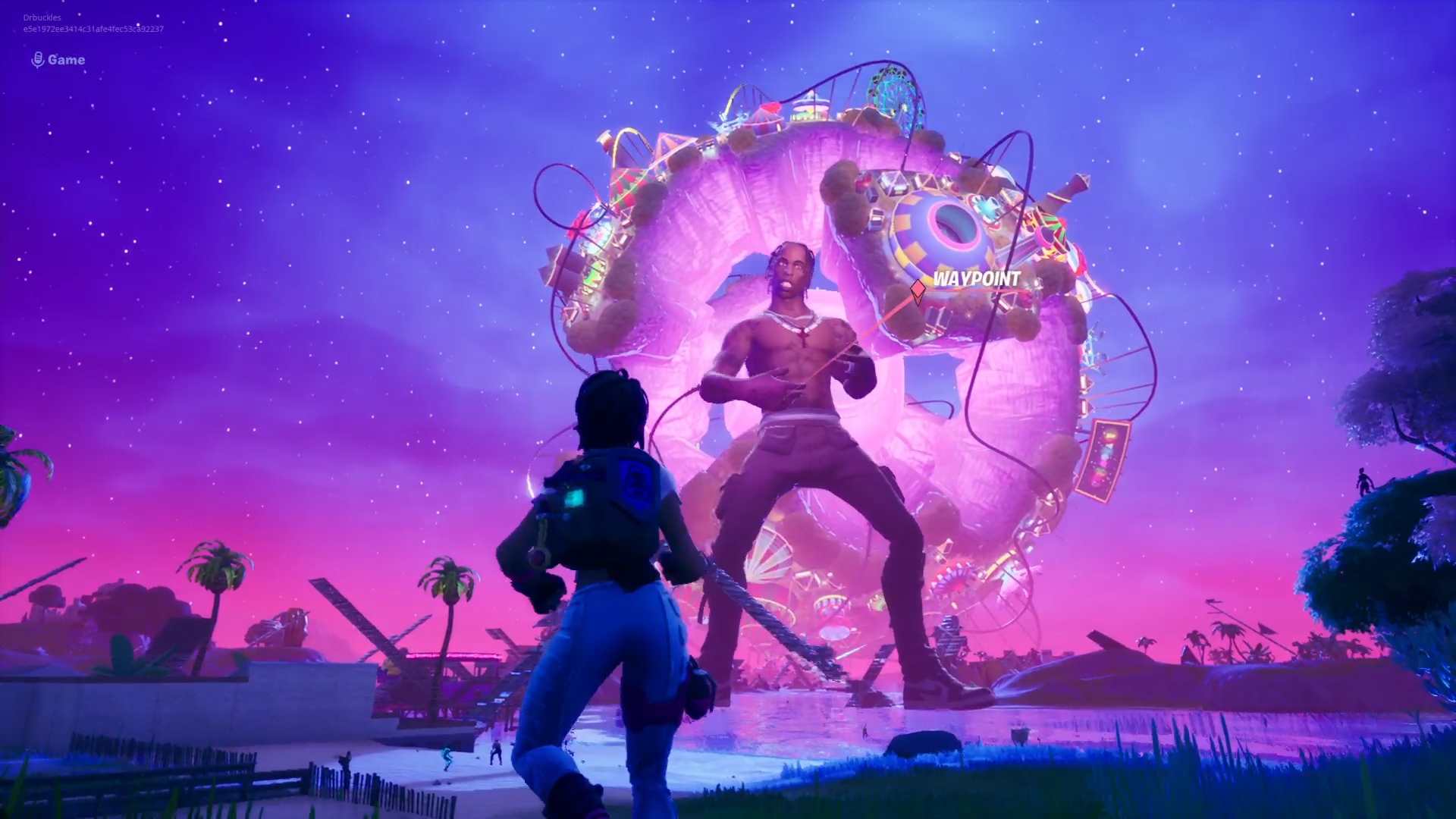
Travis Scott should be recovering from a landmark performance at the Coachella Valley Music and Arts Festival right now. But at a time where the world has been forced out of venues and into their homes, millions turned to a land of perpetual conflict and construction to catch a glimpse of the acclaimed artist in action. The landscape of music performance and promotion is changing, and Fortnite is at the heart of it.
Last night, 12.3 million concurrent players attended the first of five Travis Scott performances as part of the in-game Astronomical world tour. To put that in perspective, more people showed up simultaneously in Fortnite to watch Scott debut a new track and perform a medley of greatest hits than the populations of New York City and Los Angeles combined. That's staggering.
A headline slot at a festival like Coachella is traditionally a signal that an artist has reached a certain plateau of popularity and reverence, with the performer atop the bill charged with holding the attention of a lion's share of an estimated 250,000 attendees across the two-weekend run and the millions watching from home. With 12.3 million players tuning in for night one of Astronomical – and lord knows how many more across social media and streaming platforms in the aftermath – it becomes pretty difficult to argue with the assertion that Fortnite was able to facilitate Travis Scott stepping onto the biggest stage of his career.
The world is watching
Truth be told, it's a stage on a scale that few artists could ever reasonably claim to have entertained. When Marshmello made an appearance on February 2, 2019, 10.7 million helped turn Fortnite from Battle Royale to a live music venue it turned heads in both industries. Epic forced players to lower their weapons, turn their attention to a single point of interest, and watch as the studio completely changed the state of play for performers, live music vendors, and game designers alike. That live show set a new benchmark for in-game events in live-service games, one that apparently only Epic is capable of scaling.
The music industry is watching, because it has to be. The Marshmello performance wasn't just this cool singularity, a scaled live event the likes of which has never been seen before in a video game or concert venue. It also helped propel the already-popular artist to new levels of popularity, with figures from Nielsen Music suggesting that that on-demand video streams of Check This Out jumped by an estimated 24,000 per cent after its performance in-game. Epic hasn't released the numbers on how many people purchased the $25 limited edition Marshmello emote, character and glider skin, but you'd imagine it would be sizable – the equivalent of buying merch at a venue in the moments after the sounds subside.
For Scott, who already boasts 45-million certified records sold in the US, not to mention six Grammy award nominations and a Billboard Music Award to his name, only time will tell what kind of of audience – an audience eager to purchase merchandise, attend future shows, and stream his music – might emerge out of quarantine because of this spellbinding performance. Hell, limited-edition Astronomical tees and Nerf guns are already available online.
Commercial opportunities aside, I want to be perfectly clear on one point. Fan or not of Travis Scott's particular brand of lo-fi hip hop – it was spellbinding. Epic was able to pull off a feat of technical engineering on a scale I've never seen before, none of us have. It's all the more impressive when you consider that this was all done while the developments and technicians behind Fortnite executed this all from their homes.
Sign up to the GamesRadar+ Newsletter
Weekly digests, tales from the communities you love, and more
Travis Scott slays in Fortnite
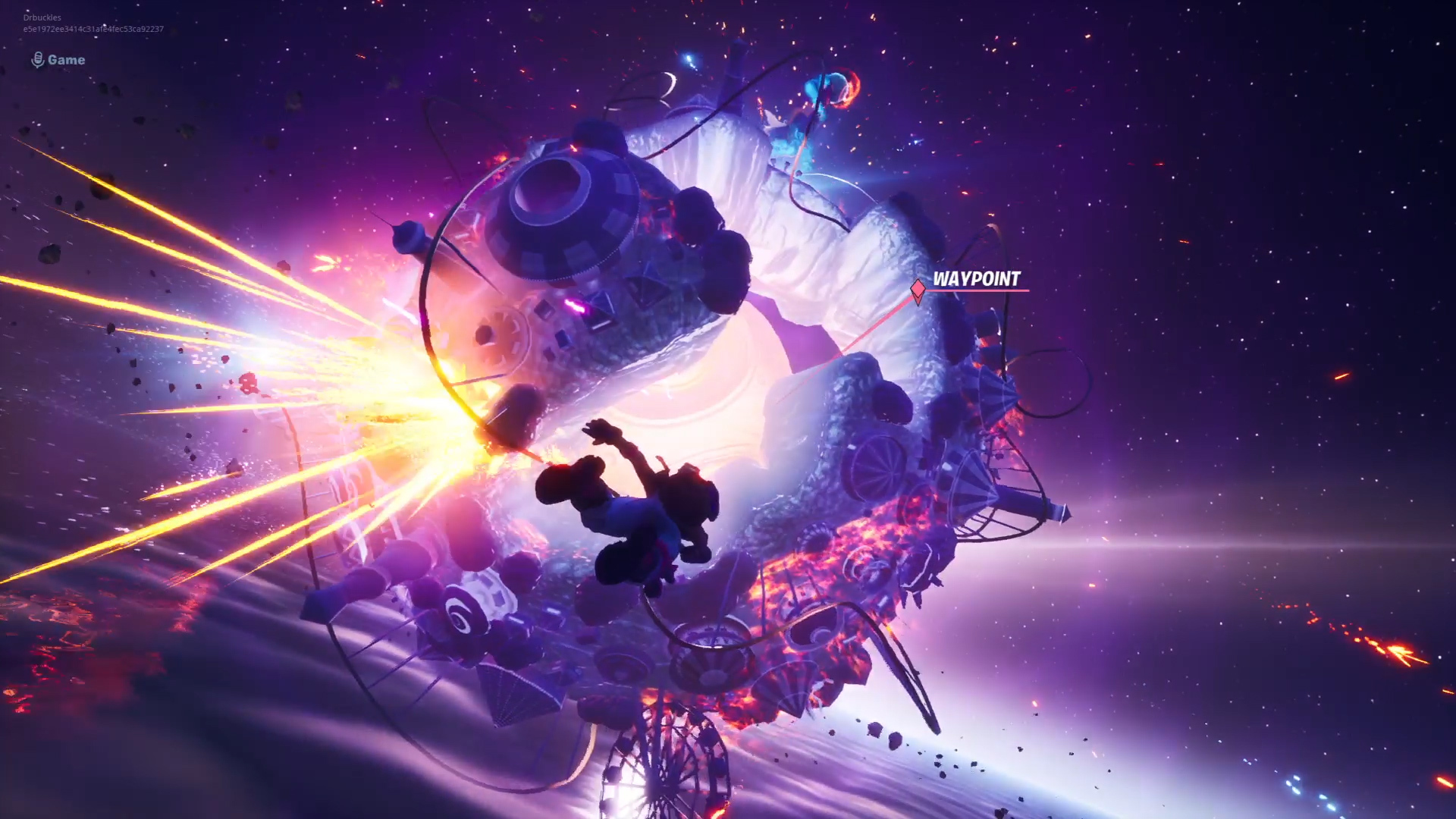
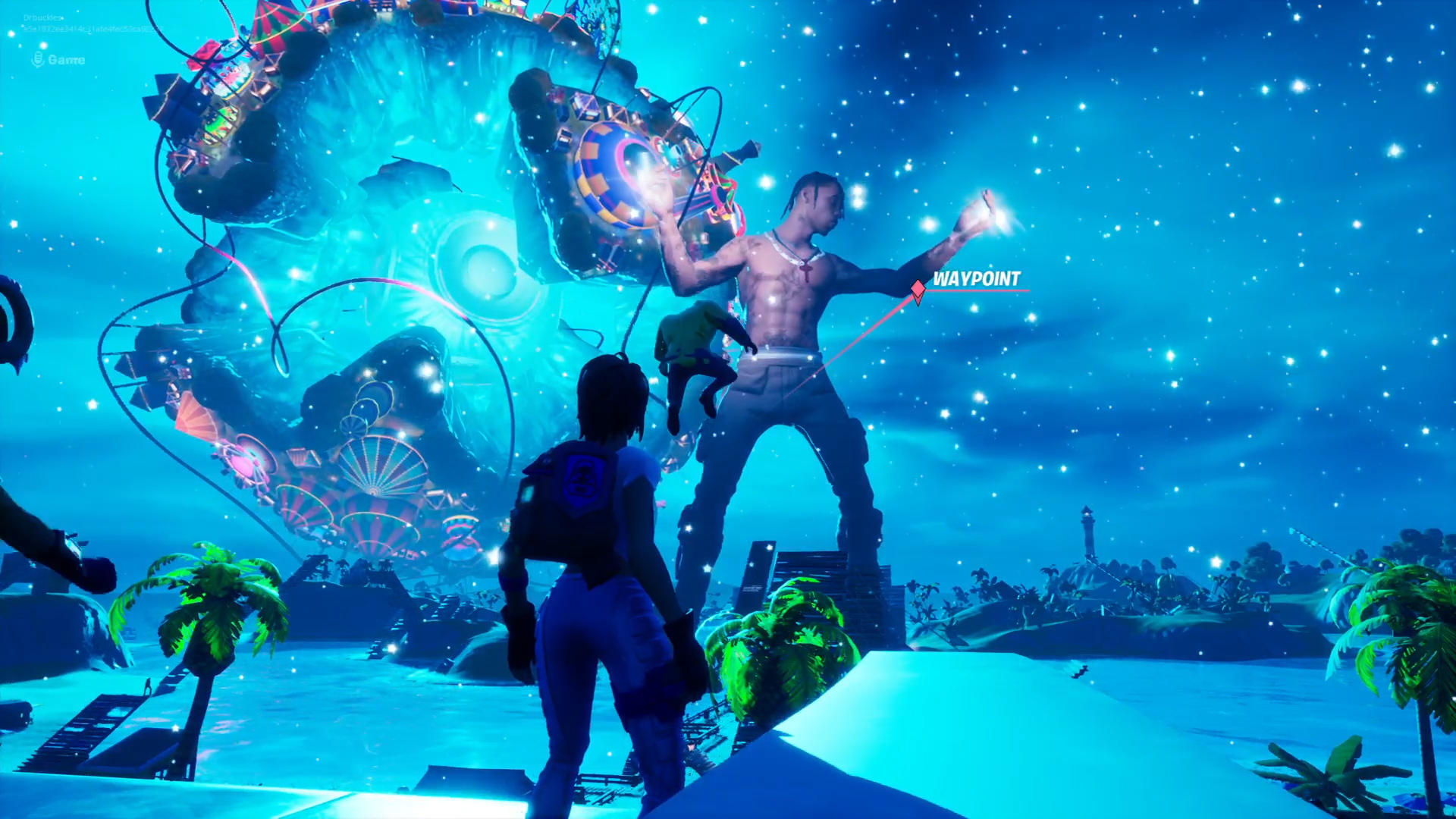
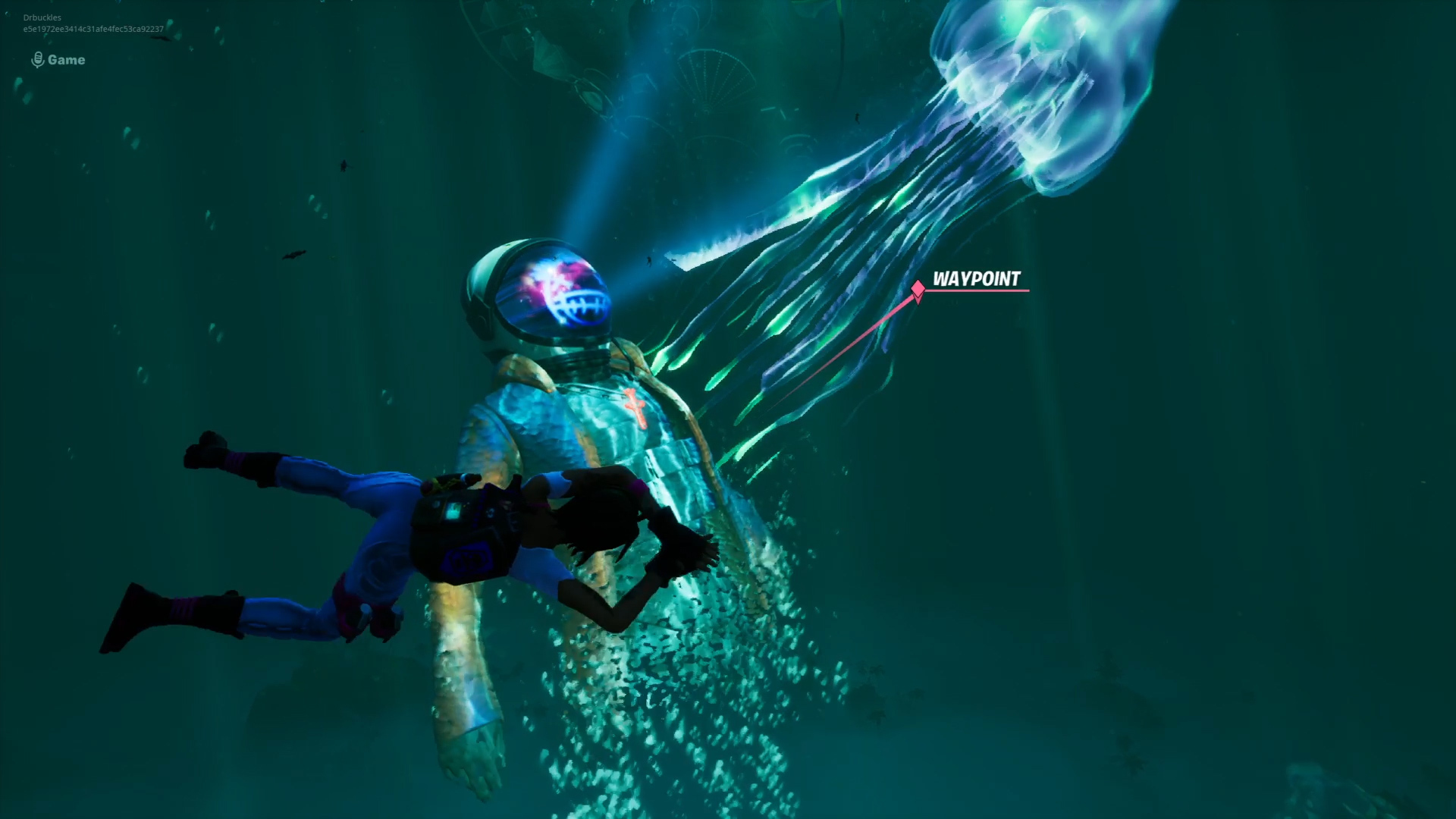
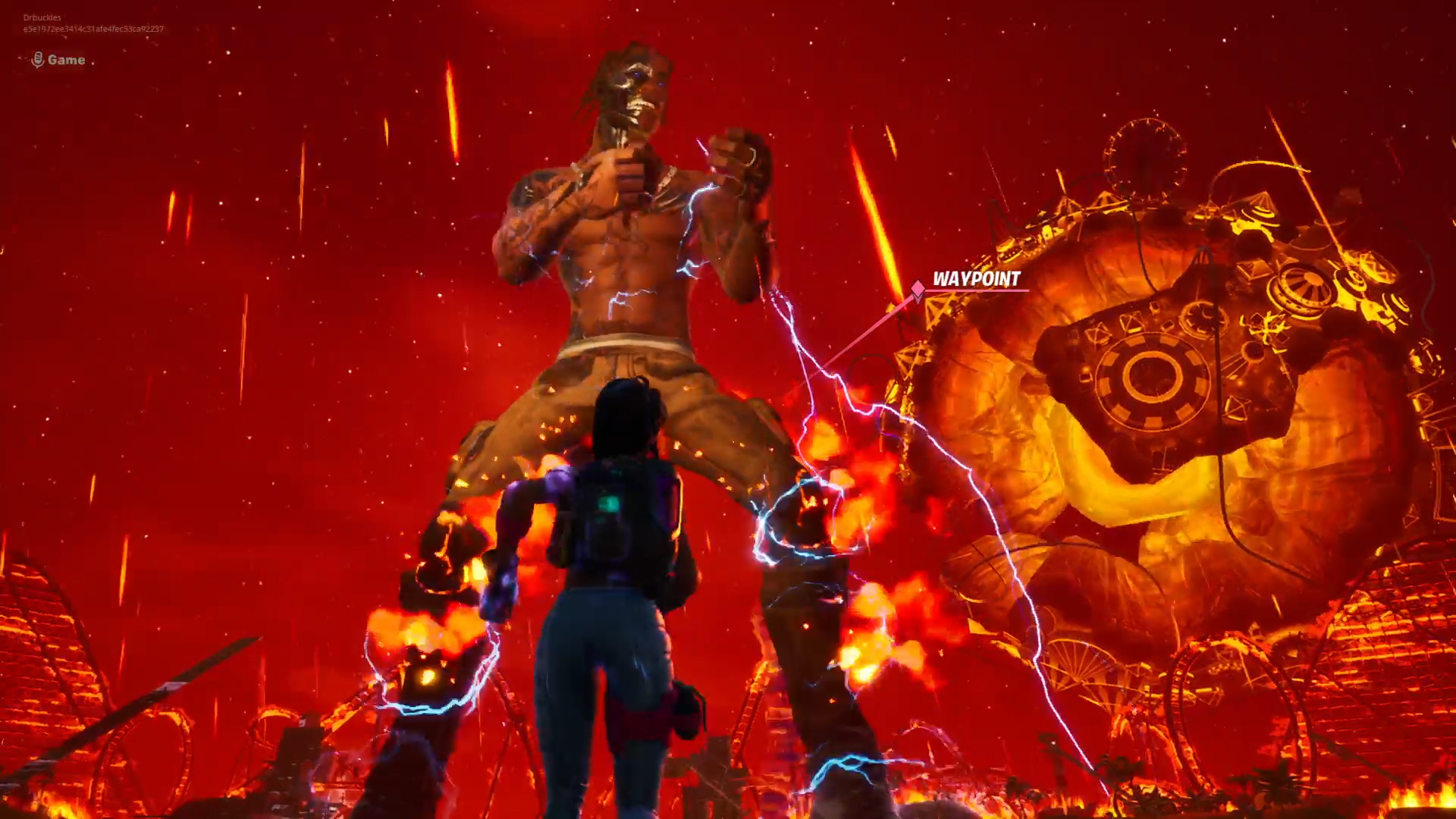
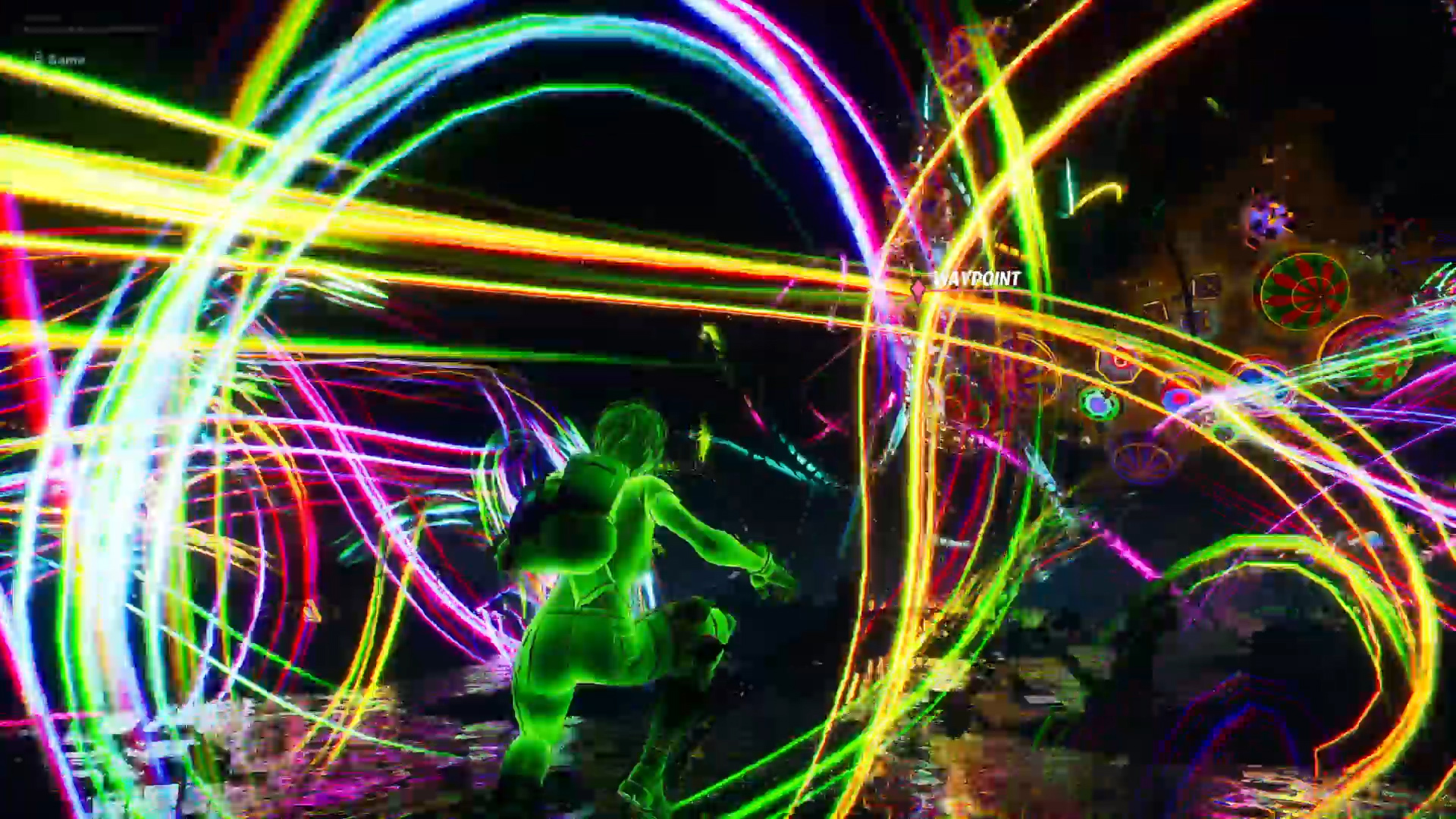
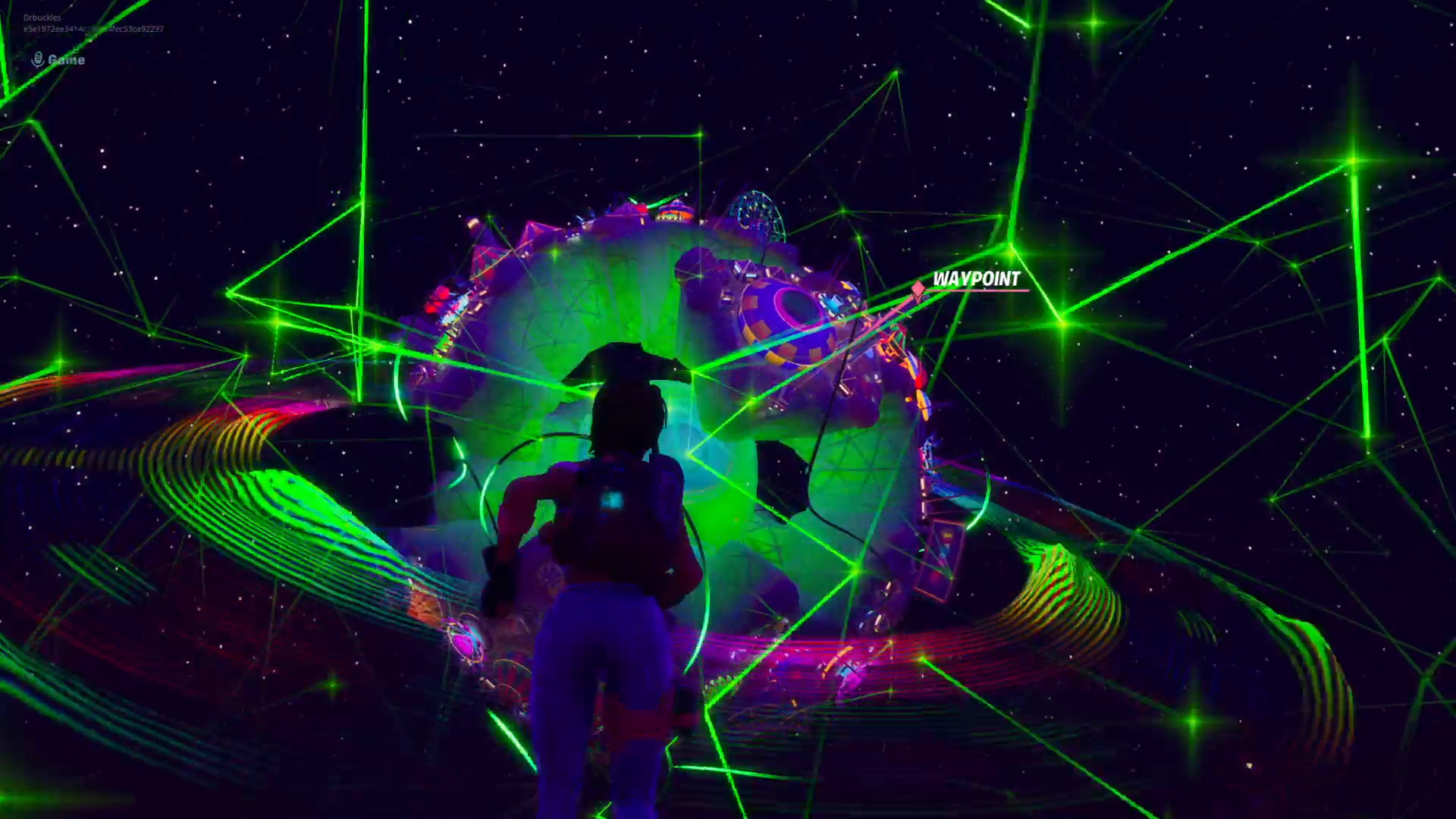
Epic had been building to this all week. If you went down to Sweaty Sands, and could avoid being shot long enough to spot it, you'd have seen a large stage being constructed on top of the water. It was here, just days later, where Travis Scott made his descent to the island as Epic switched off the UI, limited emotes, and forced players to switch out their weapons for fiery microphone stands.
From here, Fortnite transformed into a psychedelic music video, part pre-recorded mix and part- heady visualiser. A hologram of Scott dominated the field of vision as the opening bars to Sicko Mode kicked into gear, the world transforming as Scott grabbed two stars from the sky, slapping them together to send the mix through the final bars of Stargazin. From there, the mix transitioned into Goosebumps and submerged us in the ambiance of Highest in the Room. Between transitions, players began to drift from the ground and into the air, swirling across the island and, eventually, out of its atmosphere as the tempo peaked and subsided. More impressive still was how the exaggerated simplicity of Fortnite's art design was able to be so effortlessly supplanted by the visual identifiers of Scott's 2018 effort Astroworld.
The medley was wrestling with old and new. Big bankable hits slowly reaching towards a crescendo: the premiere of The Scotts, a new single in collaboration with Kid Cudi – which released Thursday night, after the performance. This was a visual experience the likes of TikTok and YouTube could never hope to match, a music video that invites the passive participant to actively engage with the experience.
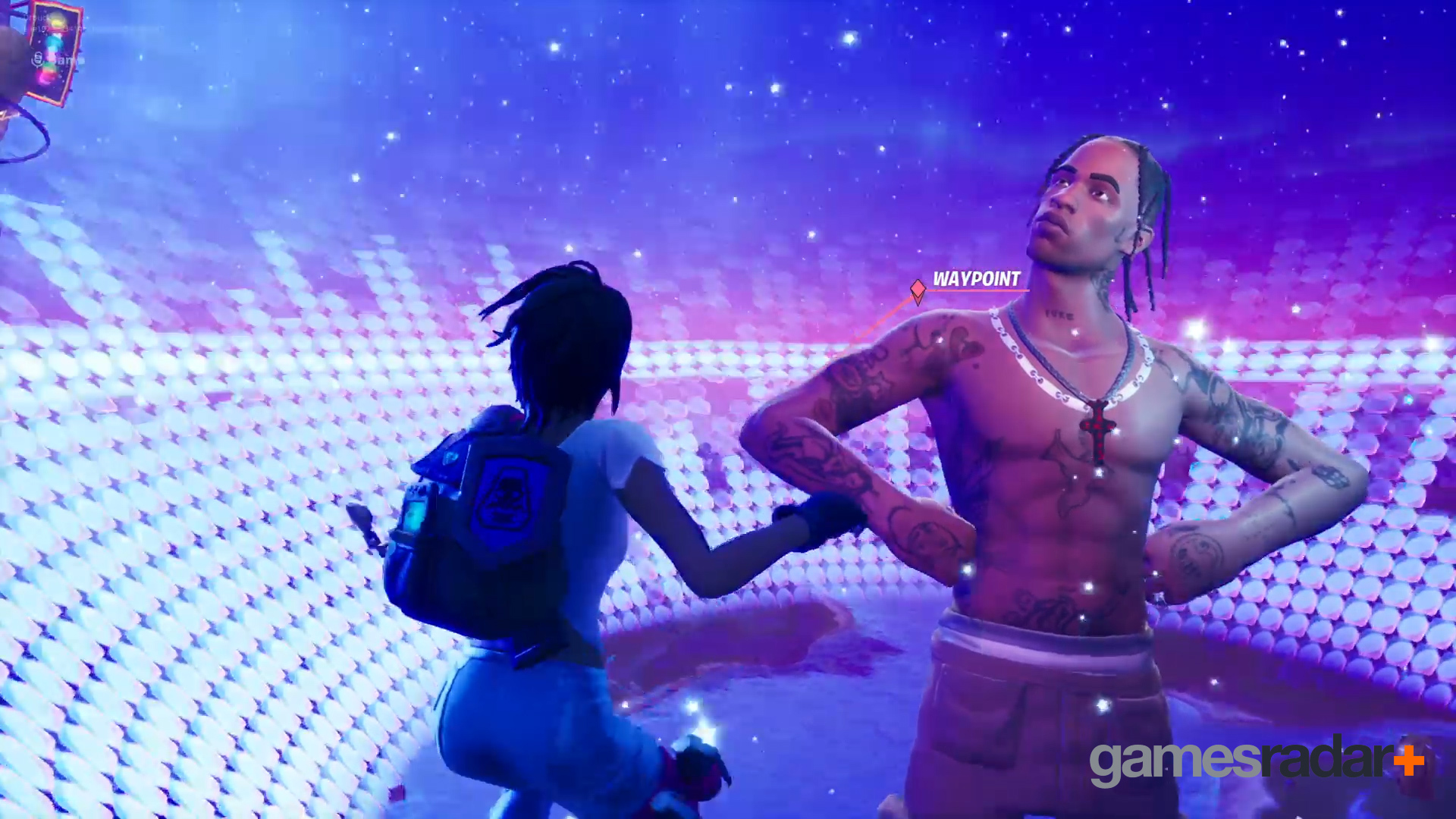
"It's a music video that invites the passive participant to actively engage with the experience."
Travis Scott's performance is something that could only ever exist in a virtual world. Although, to be honest, it's something that could really only exist in Fortnite. Even as we see some of the larger music studios begin to experiment with concerts hosted in virtual reality arenas, and as artists look for ways to connect with fans directly outside of the tightly controlled-ecosystems populated by music-streaming and social media platforms, nothing compares to the blend of trippy hedonism that Fortnite was able to execute in this collaboration.
The Astronomical tour is undoubtedly the most ambitious event in Fortnite's history. Epic has constantly pushed itself in this regard, even since it first sought to crack the sky in June of 2018. Since, it's hosted massive mech battles, torn the entire island apart with a black hole, and even been used as a platform to premiere Star Wars: The Rise of Skywalker footage. With Fortnite continuing its entanglement with popular culture, it's what it is achieving on the music front that is the most impressive.
It has proven itself capable of hosting album-listening parties with Weezer, holding live concerts with Marshmello, and now a platform more potent than any other on the planet to launch new tracks alongside what would appear to be the next evolution of the music video. The question now is what could possibly come next, because it is truly impossible to anticipate.

What time is the Travis Scott event in Fortnite? It's running all week, so be sure to find all of the info after the jump. Don't forget, you can also take part in the Fortnite Astronomical challenges to unlock free gear.

Josh West is the Editor-in-Chief of GamesRadar+. He has over 15 years experience in online and print journalism, and holds a BA (Hons) in Journalism and Feature Writing. Prior to starting his current position, Josh has served as GR+'s Features Editor and Deputy Editor of games™ magazine, and has freelanced for numerous publications including 3D Artist, Edge magazine, iCreate, Metal Hammer, Play, Retro Gamer, and SFX. Additionally, he has appeared on the BBC and ITV to provide expert comment, written for Scholastic books, edited a book for Hachette, and worked as the Assistant Producer of the Future Games Show. In his spare time, Josh likes to play bass guitar and video games. Years ago, he was in a few movies and TV shows that you've definitely seen but will never be able to spot him in.


